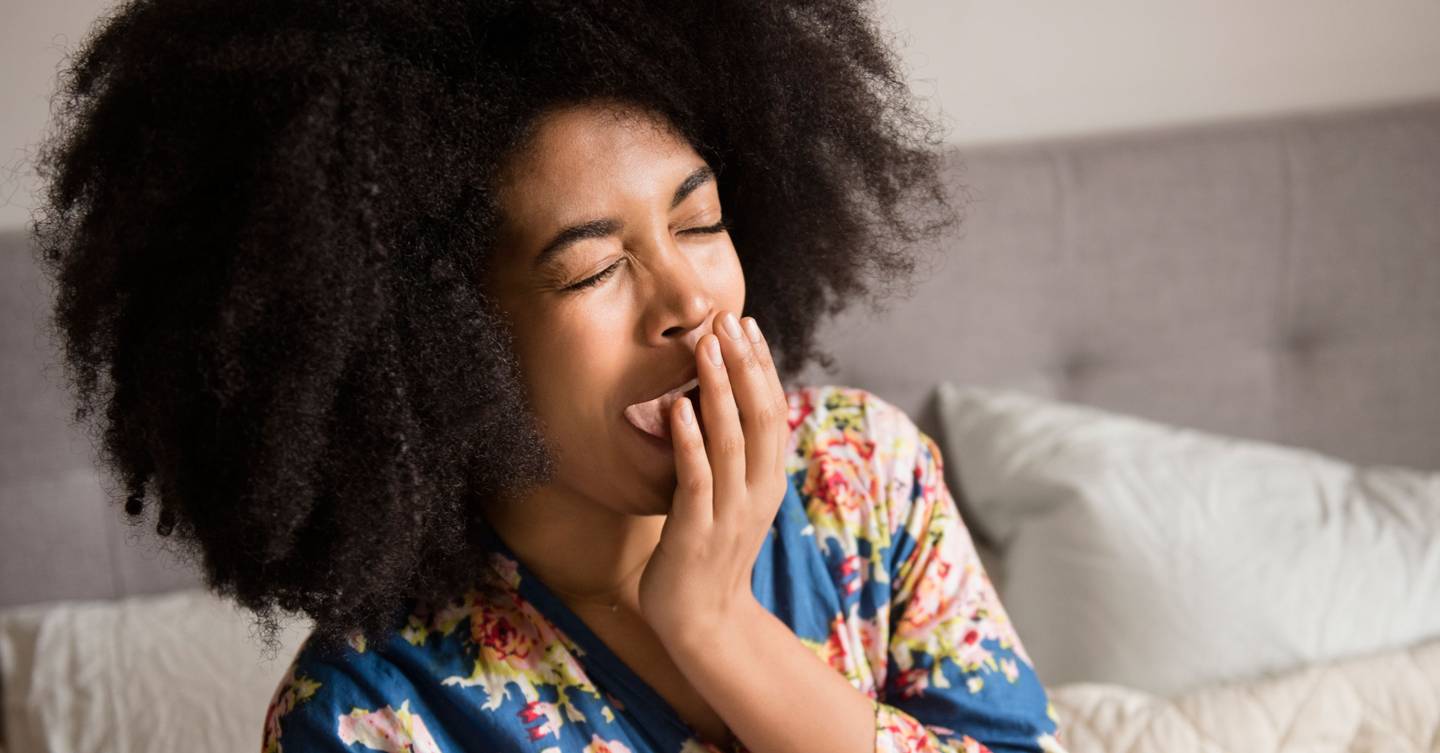How many times have you heard yourself say: ‘I could sleep for another 5 hours’, or ‘No matter how much sleep I get, it’s never enough’, or ‘I’m just knackered all the damn time‘?
We hear you – and so does the rest of the world. Of 13,000 adults polled in 13 countries, 70% have experienced new sleep challenges since the start of the pandemic, and 60% say the pandemic has directly impacted their ability to sleep well, according to a recent study by Philips. We’ll try anything in our quest for a properly restful night’s kip, from progressive muscle relaxation techniques to new fancy pillows and mattress protectors.
But sometimes, lack of good-quality sleep can be down to something as simple as how often you go outside – it’s all down to our internal body clock, or ‘circadian rhythm’.
“Our circadian rhythm is our internal clock which tells our bodies when to do things like eat and sleep,” says Dr Lindsay Browning, psychologist, neuroscientist and sleep expert at And So To Bed. “Our circadian rhythm is responsible for producing a hormone called melatonin, which regulates sleep, and we naturally produce melatonin to help us go to sleep around 8 to 10 hours after our maximum sunlight exposure of the day. This is registered in a part of our brains called the suprachiasmatic nucleus (SCN), whose sole job is to monitor light levels”.
So put simply, our body clocks work like this:
- Morning light signals to the SCN to be up and awake.
- Exposure to the maximum brightness of the day’s light (or ‘lux’), the SCN flags this as midday, anchoring our 24-hour circadian rhythm clock around this point.
- 8-10 hours later, our bodies produce melatonin to make us feel sleepy.
“So if your maximum sunlight exposure of the day is when you go home from work at 5pm, instead of at lunchtime (because you didn’t leave the
office), then your circadian rhythm may want you to go to bed later and wake up later than you would like, as it thinks that 5pm was actually midday,” explains Dr Browning.
This also explains why we can find it hard to sleep during the day and stay awake at night, or why we experience jet-lag, as our body’s circadian rhythm is in another time zone.
So, if you find yourself very sleepy too early or not feeling tired at bedtime, an out-of-whack circadian rhythm is likely to blame. Here’s how to fix a broken body clock:
Don’t skip breakfast
Our body clock gets cues when we eat. If you skip breakfast, for example, then your circadian rhythm won’t know that it is actually morning yet. Similarly, if you eat food in the middle of the night then your circadian rhythm can think it is already morning and start to wake you up too early. Make sure you’re eating meals at regular intervals throughout the day tells your body that it’s daytime.
Get moving
Similarly, being active signals to your body clock the difference between night and daytime. One study suggested that scheduling your workouts at certain times during the day can help regulate your body clock, with 7am or between 1pm and 4pm being the optimal times to workout to feel refreshed the next day.
Go outside at lunchtime
As mentioned, sunshine exposure is the main regulator of our circadian rhythm. It’s all too easy to get up, log onto your computer, and spend all day inside never seeing the sun. This can lead to a weak circadian rhythm, or even worse, a circadian rhythm that is in the wrong time zone. So don’t be tempted to have lunch at your desk or skip a stroll in favour of a quick bite at your kitchen table – even short exposure to sunlight at lunchtime can help.
Seriously, put down the phone before bed
We know it’s been said a thousand times before, but it’s true: electronic devices before bed can seriously mess with your body clock.
Smartphones, tablets, laptops and computers can emit a bright blue frequency of light which our brains interpret as bright daytime sunshine.
If you are looking at screens late in the evening then your eyes will be exposed to this blue light and your circadian rhythm will think that it is much earlier in the day and try to stop producing melatonin, disrupting sleep.
If you must use screens, make sure night mode is enabled to automatically reduce the blue light.
Avoid those weekend lie-ins
People can also experience problems with their circadian rhythm if they go to bed late and sleep in at the weekend, but then struggle to go to sleep early on Sunday night in order to get up early Monday morning. Avoid this vicious cycle by sticking to a regular sleeping pattern.
Understand your own circadian rhythm
There are many individual variations in our circadian rhythm – this is a personality trait popularly called “larks and owls”. Larks are people who tend to go to bed early and get up early; whereas owls are those who prefer to go to bed late and sleep in late in the morning.
Larks are likely to feel more alert early in the day, so schedule your day to address difficult tasks in the morning. Owls on the other hand may not feel fully awake first thing in the morning, and would be better to delay the more taxing chores of the day to later.
